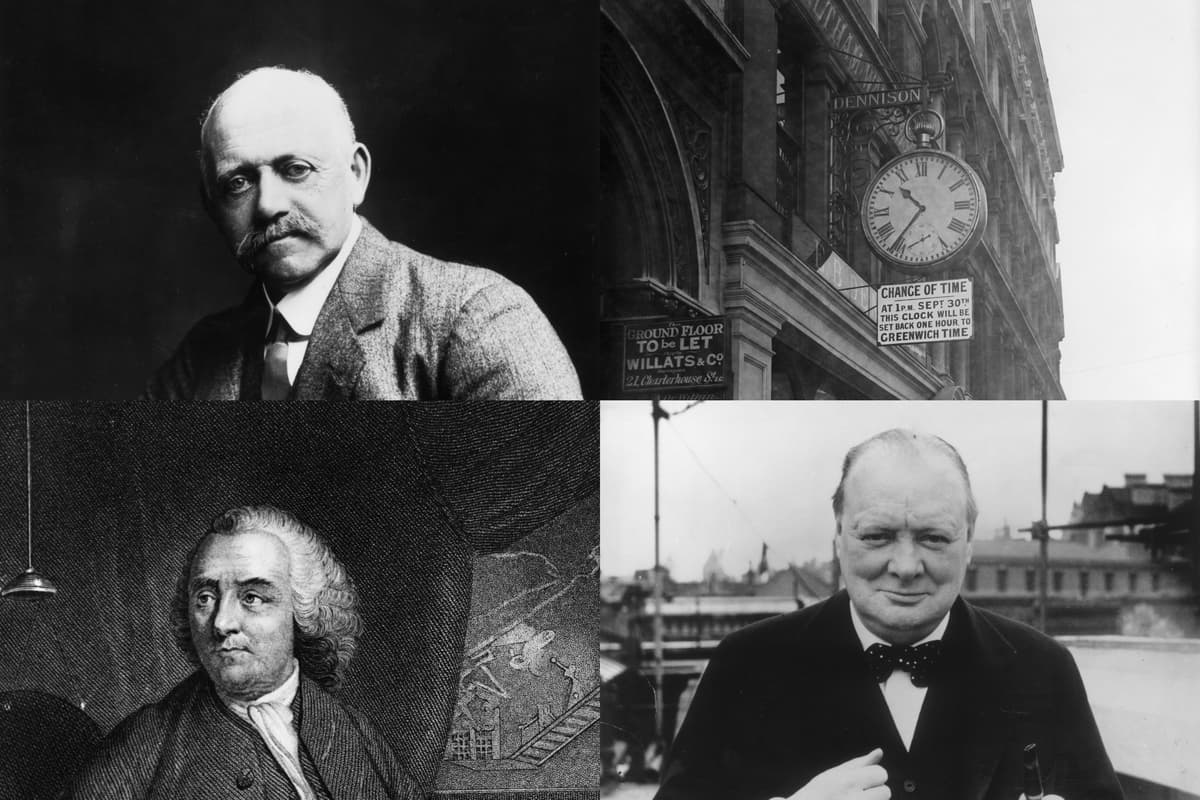Copyright thescarboroughnews

Daylight saving time dates back to 1916, but its roots stretch back much furtherThe history of British Summer Time includes golf, insect collecting and hunting - there’s even a link to ColdplayIt was the outbreak of war which finally led to its introduction Daylight saving time is more than 100 years old, but why do the clocks go back in autumn and forward each spring? The story involves Benjamin Franklin, one of the founding fathers of the US; a keen golfer who was Coldplay frontman Chris Martin’s great-great-grandfather; and the First World War. Franklin, whose famous inventions included the lightning rod and bifocal glasses, reportedly suggested back in 1784 that people should get up earlier in the summer to make the most of the daylight. But he never specifically mentioned putting the clocks forward, and it would be more than a century until serious proposals for daylight saving time were put forward. It was George Vernon Hudson, who was born in London but moved to New Zealand as a teenager, who is widely credited with the concept of daylight saving time. The keen insect collector, who worked as a post office clerk, valued the daylight hours he had after work in which to pursue his hobby. In 1895, he presented a paper which proposed putting the clocks forward two hours in the summer to make the most of the evening light. With his idea attracting interest, he put together a second paper, expanding on the theory, in 1898, though daylight saving time was not introduced in New Zealand until 1927. ‘The Waste of Daylight’ Over in England, the builder William Willett was similarly keen for the clocks to go forward in summer, in his case, reportedly, so he had more time in which to play golf in the evening. He published a pamphlet in 1907 called The Waste of Daylight, bemoaning the waste of sunlight during summer mornings. Willett’s original suggestion was to put the clocks forward by 80 minutes in total, advancing them by 20 minutes each time over the course of four consecutive Sundays in April, with the reverse happening in September. His proposal gained considerable support, including from a young Winston Churchill, but although it was considered in parliament, nothing was done for several years. It was the outbreak of the First World War which proved the catalyst, with the pressing need to save coal and boost wartime production seeing the proposal adopted. The Summer Time Act was passed on May 17, 1916, and the clocks went forward an hour for the first time in Britain the following Sunday, May 21 - just weeks after they had done so in Germany. Willett sadly didn’t live to see his idea become law, having died of influenza in 1915, aged 58. Coldplay link Willett was the great-great-grandfather of Coldplay’s Chris Martin, though the band’s hit Clocks has nothing to do with his descendant’s role in British Summer Time. Even before Willett put forward his proposals for daylight saving time, some people had already taken matters into their own hands. King Edward VII famously stipulated in 1901 that all clocks on his Sandringham country estate in Norfolk should be put forward 30 minutes to allow more time for hunting. In the months and years following its introduction in Germany and Britain, many other countries adopted daylight saving time. Where is daylight saving time observed today? Today, daylight saving time is observed in around 70 countries around the world, including most of Europe and North America. During the Second World War, British Double Summer Time was temporarily introduced, with the clocks being set two hours ahead of Greenwich Mean Time in the summer and remaining an hour ahead in winter to boost production. Normal British Summer Time resumed once the war ended and has remained in place since, despite much debate. The only exception came during a short-lived experiment between 1968 and 1971, when the clocks went forward but were not put back. The clocks going back can interfere with our sleep routine, affecting our health, but there is one thing you can do to improve your wellbeing.



